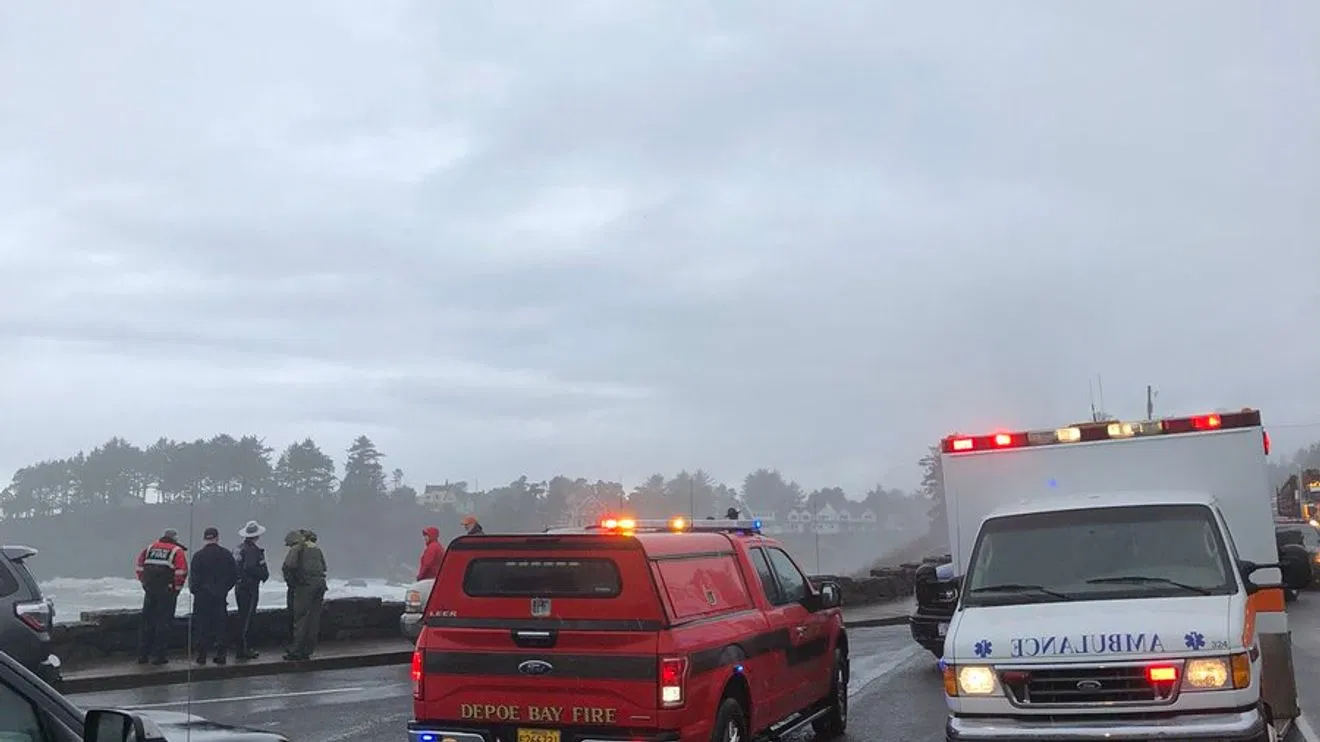By Kiera Morgan:
 The Lincoln County Board of Commissioners held a special meeting to further discuss Measure 21-177 the ban on aerial spraying. Commissioner Hall read a statement opposing the measure (posted below) that the commissioners will be placing in the voters pamphlet. The commissioners acknowledge concern about the application of aerial pesticides and want to encourage a deeper dialogue to reach common ground on protecting the public’s health. Measure 21-177 they said is not that approach. Most of the commissions concerns centered on unclear definitions in the measure that commissioners say will create unintended consequences for the county.
The Lincoln County Board of Commissioners held a special meeting to further discuss Measure 21-177 the ban on aerial spraying. Commissioner Hall read a statement opposing the measure (posted below) that the commissioners will be placing in the voters pamphlet. The commissioners acknowledge concern about the application of aerial pesticides and want to encourage a deeper dialogue to reach common ground on protecting the public’s health. Measure 21-177 they said is not that approach. Most of the commissions concerns centered on unclear definitions in the measure that commissioners say will create unintended consequences for the county.
They pointed out that the term “aerial” is undefined, meaning this Measure may prohibit many application methods used by a wide variety of local industries. The measure gives individuals the right of “direct action” to enforce this measure. Commissioner Hall said he spoke with representatives from the citizens for a healthy county group, who placed the measure on the ballot, about the issues the commissioners were most concerned about. “I understand that non-violent direct action is one of their principals but unfortunately that phrase is not used in here.” Hall added “One supporter told me that aerial is defined under Oregon statutes, but it is not referenced here and there is no clear definition.”
Commissioners also had issues with the term “Corporation”. It is also was not defined specifically in the measure and corporations can include all government entities, thereby restricting county practices. Commissioners also noted that if passed the measure will tie up county courts and it would expose the county to Numerous Legal Challenges. Citizens for a Healthy County say these items are clear in the measure and that the opposition is twisting words to confuse the public and spread misinformation. Other public entities opposed to the measure are the ports of Newport and Toledo and Lincoln County Sheriff Curtis Landers.
Statement for County Commissioners:
As elected leaders of Lincoln County, we have a duty to look out for the people we represent. We acknowledge concerns within our community about the application of aerial pesticides and want to encourage deeper dialog within Lincoln County where we can arrive at common ground on protecting the public’s health. Measure 21-177 is not that approach.
Unclear definitions will create unclear consequences for the county. Measure 21-177 fails to define key terms while defining others too broadly. The term “aerial” is undefined, meaning the measure may prohibit many applications and methods of use by a wide variety of local industries.
The measure gives individuals the right of “direct action” to enforce this measure. That term is not defined. The measure defines corporations to include all government entities thereby restricting county practices. It allows direct intervention amounting to vigilantism. Under 21-177 individuals from anywhere in the county can use direct actions to enforce the measure and they are granted civil and criminal immunity for all actions taken, including destruction of private property. Local law enforcement’s hands would be tied in instances of criminal trespass or sabotage of private equipment. It will tie up county courts and expose us to numerous legal challenges. The measure is a direct challenge to the U.S. Constitution claiming that a county ordinance should supercede federal law.
If adopted, the county will face a protracted battle to defend it the courts, the legal cost of which will trade off funds for county services. It will divert county funds thereby causing an increase in bureaucracy.
Under 21-177 the county would be responsible for full and complete restitution of the ecosystem from any impacts from aerial spraying. The county does not have the resources to undertake such large scale habitat and waterway rehabilitation programs.
Measure 21-177 is not the proper tool to protect Lincoln County. We encourage a “no” vote.
